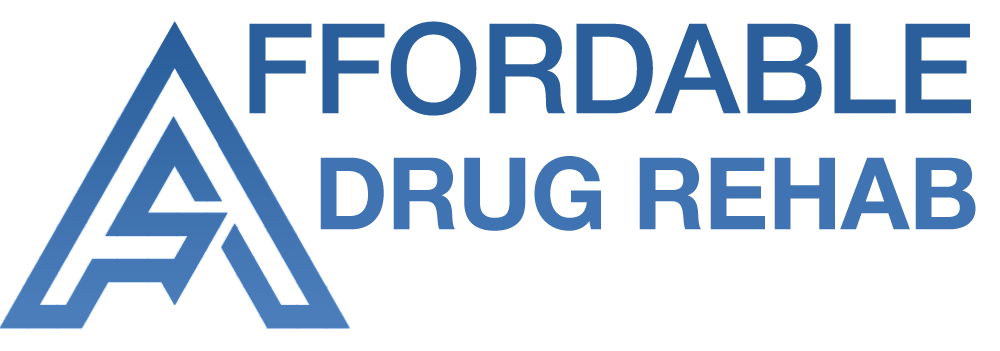Exploring low cost drug rehab options can be stressful and you may not know where to start. Our expert team at Affordable Drug Rehab is here to help you or your loved one find the perfect low cost drug rehab options for all of your needs.
Addiction is a battle many people face, and overcoming it is a heroic endeavor that requires courage, support, and sometimes, professional intervention. However, one major deterrent for individuals seeking help for drug addiction is the perceived high cost of rehabilitation. In this comprehensive guide, we peel back the layers of this misconception and shed light on affordable pathways to recovery.
Understanding the Cost of Drug Rehabilitation
Rehabilitation costs vary widely based on factors such as facility location, type of program, duration, and level of care. For many, the thought of incurring substantial financial debt can be paralyzing, causing a delay in much-needed treatment. However, it’s crucial to understand that there are quite a few affordable options offering quality care.
- Finance-Related Decision Factors
When considering drug rehabilitation, it’s essential to evaluate your financial options and understand what’s feasible for your budget or for that of your family member who’s seeking help. Analyzing insurance coverage, out-of-pocket expenses, and the availability of state-funded or grant-assisted programs can significantly reduce the financial burden.
- The Myth of Price and Quality
There’s a common belief that the higher the cost, the better the quality of rehabilitation. While some luxury facilities may offer more amenities, comprehensive care and successful recovery outcomes can still be achieved within a lower price range. It’s imperative that the focus is on the services provided and the facility’s success rates.
Determining Your Financial Capability
Navigating the finances of drug rehabilitation can be complex, especially when dealing with addiction. Issues such as job loss, strained relationships, and financial mismanagement often accompany the disease, making the process of seeking treatment even more challenging.
- Assessing Available Resources
Begin by taking stock of all available resources. This includes insurance policies, savings accounts, and personal funding sources. Recognize the investment in rehabilitation as a foundational step toward securing a healthier and more stable future.
- Understanding Insurance Options
Insurance can be a major avenue for securing low cost drug rehab options. Policies vary, but many providers offer coverage for inpatient and outpatient programs. While navigating the complexities of insurance, it’s helpful to consult with an expert or the insurance company directly to gain clarity on coverage specifics.
- Investigating Government Assistance
Many federal and state programs exist to aid individuals in getting the treatment they need. Medicaid, Medicare, and the Substance Abuse and Mental Health Services Administration (SAMHSA) are prominent examples. Government-funded rehabs may provide low to no-cost programs for qualifying candidates.
- Exploring Alternative Payments
For those without insurance or access to government aid, alternative payment solutions can bridge the gap. Sliding scale fees, payment plans, and treatment financing are options some facilities provide to accommodate various financial conditions.

Quality Over Cost: Finding the Right Fit
While cost is a significant factor, the effectiveness of rehabilitation programs is most crucial. A facility’s success rate, accreditation, and the qualifications of its staff members are far more important when considering the potential for long-term recovery. Luckily, there are centers that offer low cost drug rehab options with high reviews.
- Evaluating Program Offerings
Opting for a facility that matches the right combination of programs and services to individual needs is paramount. Look for centers that offer a variety of therapies, such as cognitive-behavioral therapy (CBT), dialectical behavior therapy (DBT), and even holistic or alternative approaches for a more comprehensive recovery experience.
- Researching Facility Accreditation
Accredited centers adhere to standard treatments and practices endorsed by the industry. The Joint Commission and the Commission on Accreditation of Rehabilitation Facilities (CARF) are two leading organizations that provide certification to rehabilitation facilities.
- Staff Qualifications and Experience
A facility’s staff should be well-trained and experienced in addiction treatment. Moral and medical support from qualified professionals can make a significant difference in recovery outcomes. Verify the credentials of the directors, therapists, and support staff when researching potential facilities.
Inpatient vs. Outpatient: Which Option is Right?
The choice between inpatient and outpatient rehabilitation is multifaceted and dependent on individual circumstances. Understanding the core differences will allow for a more informed decision that harmonizes with treatment goals and financial constraints. Lost cost drug rehab options can be either inpatient or outpatient, our team at Affordable Drug Rehab is here to help you determine what program is best for you.
- Inpatient Rehabilitation Considerations
Inpatient programs typically offer more comprehensive treatment, with the individual residing at the facility. While more expensive, they provide round-the-clock care, isolation from triggers, and an immersive therapeutic environment that can be more effective for severe addiction cases.
- Outpatient Rehabilitation Advantages
Outpatient programs offer the flexibility of living at home and attending scheduled therapy sessions or support group meetings. They are generally less expensive and appropriate for those with milder addictions or more stable living conditions and support networks.
How to Choose the Right Low-Cost Drug Rehab Options
The process of selecting an affordable rehabilitation center should be thorough and well-researched. Arm yourself with the knowledge necessary to make a decision that prioritizes recovery without compromising quality.
- Consult with an Admissions Specialist
Many low-cost rehab centers have expert staff members who can guide you through the process. These professionals are adept at matching individuals with appropriate programs that align with personal and financial needs.
- Seek Recommendations and Reviews
Take advantage of the experiences of others. Seek referrals from trusted sources, and scour online reviews to gain insight into the reputation and success of potential facilities.
- Schedule a Visit
Whenever possible, visit the facility in person or through a virtual tour. By seeing the center first-hand, you can assess its environment, meet with staff, and witness the day-to-day operations to ensure it meets your standards.
- Discuss Financial Options
Openly discuss financial concerns with the rehab center. Transparent communication can lead to a tailored approach that addresses your situation. Ask about financial aid, grants, or discounts that may be available to make treatment more affordable.
- Substance-Specific Programs
Certain substances require specialized detoxification and treatment. Ensure that the chosen facility has experience and success in treating the specific addiction. Tailored programs can make a significant difference in recovery.
Affordable Drug Rehab’s Admissions Team
At Affordable Drug Rehab, we understand the overwhelming process of researching and choosing a rehabilitation center. That’s why our experienced admissions team is here to guide you every step of the way. We know that each person’s journey towards recovery is unique and requires individualized care.
Our team takes the time to listen to your story, struggles, and preferences before finding the right rehab center for your specific needs and financial situation. We understand that affordability is a significant concern, but we also prioritize the quality of care and treatment programs offered. Our goal is to take the stress out of the decision-making process so that you can focus on your recovery journey with peace of mind. Let us help you find the best low cost drug rehab options for you or your loved one today.
At Affordable Drug Rehab, we believe that addiction does not discriminate. That’s why our services are open to anyone who is struggling with substance abuse, regardless of age, race, gender, or background. We understand that each person’s journey towards recovery is unique and requires individualized care. Our team has experience in treating a wide range of addictions, including but not limited to alcohol, opioids, cocaine, and prescription drugs.
We are dedicated to providing a safe and supportive environment for all individuals seeking help with their addiction. Our goal is to empower individuals with the tools and resources they need to overcome their addiction and live a fulfilling life in recovery. No matter your situation or background, Affordable Drug Rehab is here to support you in your journey towards lasting recovery. So if you or a loved one is struggling with addiction, do not hesitate to reach out to our admissions team today. We are here to help and support you every step of the way towards a healthier and happier life.
Making the Transition: Preparing for Rehab
Making the decision to enter a rehabilitation program is a brave and crucial step towards breaking free from addiction. It takes courage, determination, and commitment to embark on this journey towards recovery. Along with these essential qualities, proper preparation can also greatly contribute to the success of the rehabilitation process.
Preparing for rehab involves taking care of practical matters such as informing loved ones, arranging for time off work, and packing necessary items. It also includes emotionally preparing oneself for the challenges that lie ahead. This can involve accepting and acknowledging the need for help, letting go of any feelings of shame or guilt, and being open to change.
It is important to remember that entering rehab is not a sign of weakness but rather a courageous decision towards self-improvement. Taking the time to prepare mentally and emotionally can help ease the transition into a new environment and allow for a smoother start to the recovery process.
- Mental and Emotional Preparation
Understand that the recovery journey will have its challenges. Mentally and emotionally prepare for the commitment, confront any fear or uncertainty, and remain open to the process of change and growth.
- Physical Readiness
Before entering a program, ensure that physical health is optimized. Address any underlying conditions, get adequate rest, and nourish the body with a balanced diet. The stronger the body, the more prepared it will be for the detox and recovery phases.
- Family Support and Communication
Openly communicate with family members or loved ones about the decision to seek treatment. Their support can be instrumental in the recovery process. Ensure that family responsibilities and arrangements are addressed to avoid potential stressors during the program.
- Personal Essentials
Pack necessary personal items for the rehabilitation stay. Clothing, toiletries, important documents, and any comfort items can provide familiarity and security during the initial adjustment phase.
Post-Rehabilitation Planning: The Path to Sustained Recovery
After completing a rehabilitation program, it’s essential to have a plan in place for sustaining recovery. This plan should include ongoing support and strategies for coping with triggers and potential relapse. Here are some crucial steps to take during the post-rehabilitation phase:
- Aftercare Services and Programs
Most reputable rehabilitation centers offer aftercare services. These may include support groups, outpatient therapy, and halfway houses. Engaging in aftercare can help bridge the gap between the structured environment of the rehab facility and independent living.
- Support Systems
Create a support network that includes family, friends, sponsors, and participation in mutual support groups such as Narcotics Anonymous or SMART Recovery. These connections provide crucial emotional support and accountability.
- Lifestyle Changes
Evaluate and make necessary lifestyle adjustments. This may involve changing living arrangements, employment, or social circles to avoid triggers and sustain a drug-free life.
- Long-Term Recovery Strategies
Engage in long-term recovery strategies such as journaling, mindfulness, and ongoing education about addiction. These practices will contribute to sustained abstinence and personal growth.
Reach Out to Affordable Drug Rehab Today
Overcoming addiction is a complex and deeply personal experience. It is also an achievable goal, regardless of financial constraints. By understanding the cost considerations, assessing available resources, and choosing the right rehabilitation program, individuals can take the first step towards a life free of substance abuse. Our team can help you find low cost drug rehab options that fit your needs and preferences.
If you or a loved one is struggling with addiction and you’re concerned about the financial aspect of rehabilitation, take comfort in knowing that there are affordable, effective options available. Remember, the true value lies in quality care that supports the unique needs of the individual and promotes lasting recovery.
Affordable Drug Rehab is committed to helping you find the low-cost drug rehab options that are right for you. Our experienced team is here to guide you through the process, matching you with reputable and affordable facilities that can provide the care you deserve. Don’t let cost be the barrier to a healthier, happier life. Contact us today and take that vital step towards recovery. Give us a call at (888) 850-3656 or visit our website at www.affordabledrugrehabs.com.


